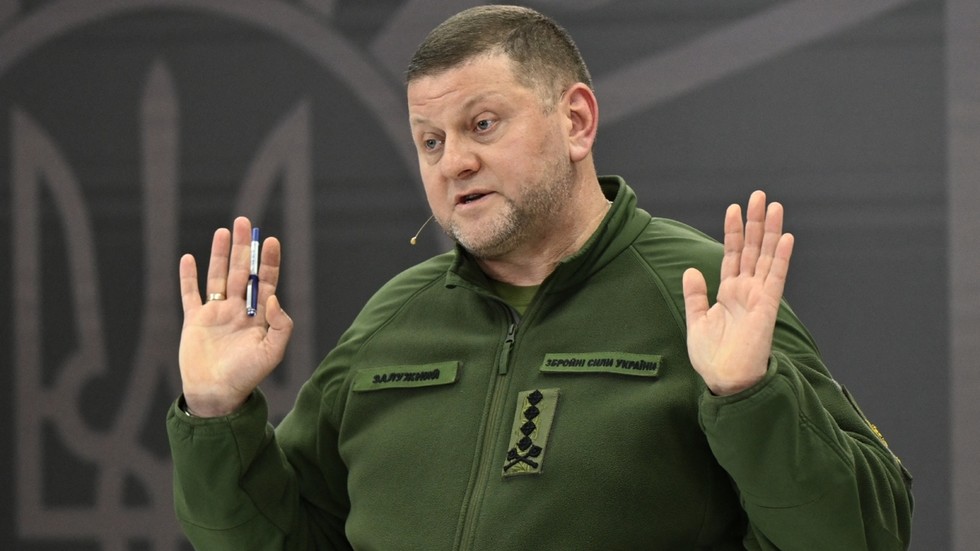
Reports of Valery Zaluzhny’s dismissal reveal problems with “media hygiene” in the country, state-run censor claims

The Commander-in-Chief of the Armed Forces of Ukraine Valery Zaluzhny © AFP / Genya Savilov
Rumors suggesting Ukrainian President Vladimir Zelensky had fired the country’s commander-in-chief, Valery Zaluzhny, were spread to destabilize Ukraine, censorship body the Center for Strategic Communication and Information Security (CSCIS) has insisted.
On Monday, numerous Ukrainian media outlets and Telegram channels, citing various political and military sources, reported that Zaluzhny had been sacked or was about to lose his job. It was claimed that the general had been offered to head the country’s National Security and Defense Council instead but declined the proposal.
Reports of Zaluzhny’s resignation “turned out to be untrue. This information has been denied by officials,” CSCIS said in a statement on Facebook on Tuesday.
On Monday, Ukraine’s Defense Ministry issued a short message on Telegram: “Dear journalists, we reply to all of you at once: No, it’s not true,” apparently referring to speculations about Zaluzhny’s fate. Shortly after that, Zelensky’s spokesman, Sergey Nikiforov, also said, “The president didn’t fire the commander-in-chief.”

Read more
The claims of Zaluzhny’s resignation were of a “destabilizing nature,” CSCIS – which was established in 2021 to strengthen state control of information – claimed.
The spread of those rumors was aimed at “destroying the unity of Ukrainian society, demoralizing it, and reducing the motivation to repel Russian aggression,” it said.
The hype around reports of Zaluzhny’s sacking reveals that there are problems “in the field of media hygiene and communications” in Ukraine, the censor added. The government and civil society should learn from those developments and work to “increase stability” in the country, it warned.
Earlier this month, Bloomberg reported that Kiev’s prime backer, the US, had been concerned that “differences” between Zelensky and Zaluzhny were “slowing efforts to crystallize a new strategy” after Ukraine’s counteroffensive last year failed to deliver the desired results.
According to the agency, the “tensions” between the two emerged in November, when the president was angered by the general describing the situation on the battlefield with Russia as “a stalemate.” Zaluzhny later retracted his comments, but “stresses have remained despite official assertions that the leadership is unified,” it insisted.
READ MORE: Zelensky claims huge increase in size of Kiev’s forces
Another bone of contention between them is the introduction of a planned mobilization law, which the commander-in-chief has demanded, but Zelensky has kept delaying, the agency said.




